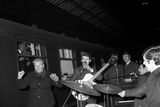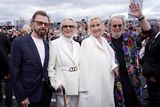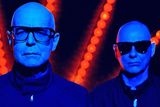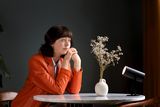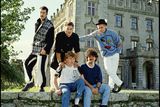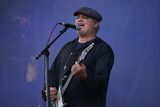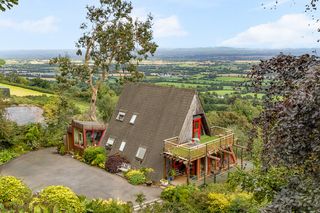All you need is love... why it's time to stop blaming Yoko Ono for The Beatles' split
This month marks the 50th anniversary of the last time all four Beatles were in a recording studio together. A month later, John Lennon announced he was out. Liadan Hynes says it is time to stop blaming Yoko Ono for the split and look at the other reasons behind it
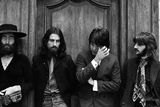
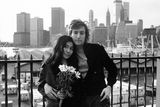
It was the summer of 1957 when Lennon and McCartney first met. John was 16, Paul 15. They bonded over music, meeting at a gig John's band was playing at a garden fete in Liverpool.
Soon, the two teenagers would share a further connection. Paul's mother had died the previous year, of breast cancer. John had been given up by his mother when he was five, and raised by his aunt. John and his mum Julia had recently reconciled, compounding the devastation of her death in 1958, with John saying he felt he had lost her twice.
For the next 12 years, until John Lennon announced in September 1969 that he was breaking up the band (a fact they kept secret until the following year), the two would form a tight partnership which created some of the world's greatest songs.
That very first day, John asked Paul if he wanted to be in his band, named The Quarrymen. Paul agreed the next day.
John and Yoko in New York
Biographer Mark Lewisohn described John as something of a troublemaker as a teenager. The losses of his childhood had left him both angry and vulnerable. Adored by other boys, he had turned his gang into a band. And that was what The Beatles was, beyond all the genius, the fans, the money and the music.
They were a tightly knit gang of four men from Liverpool, who loved each other, and understood, when nobody else in the world could, what it was to be a Beatle.
Nobody could infiltrate, but a small number of people did provide support that was essential in keeping the Fab Four together.
Their manager Brian Epstein was crucial. Tragically, he died in August 1967 of a drug overdose. Seen by many as a steadying presence, there were doubts as to whether the group would survive his death. "I knew that we were in trouble then," Lennon later said of their manager's passing. "I didn't really have any misconceptions about our ability to do anything other than play music, and I was scared. I thought, 'We've f**kin' had it'."
In February of the following year, the band went to study transcendental meditation at Maharishi Mahesh Yogi's ashram in Rishikesh, India.
"I think we were all a bit exhausted, spiritually," McCartney recalled afterwards. "We'd been The Beatles, which was marvellous. But I think generally there was a feeling of 'yeah, well, it's great to be famous, it's great to be rich - but what's it all for?'" The trip ended badly, amidst claims of sexual scandal on the part of their guru.
In 1965, The Beatles' single Help! had gone to the top of the charts on both sides of the Atlantic.
Of the famous song, Lennon later revealed that he had, in fact, been in earnest, saying towards the end of his life: "When Help! came out, I was actually crying out for help. Most people think it's just a fast rock 'n' roll song. I didn't realise it at the time; I just wrote the song because I was commissioned to write it for the movie. But later, I knew I really was crying out for help. So it was my fat Elvis period. You see the movie: he - I - is very fat, very insecure, and he's completely lost himself. And I am singing about when I was so much younger and all the rest, looking back at how easy it was."
Years after this, McCartney reflected in an interview with Rolling Stone; "Looking back on it, John was always looking for help. He had a [paranoia] that people died when he was around: His father left home when John was three, the uncle he lived with died later, then his mother died. I think John's whole life was a cry for help."
Accounts would suggest that by 1968, John was in a deep depression, about both his marriage, and his creative endeavours. On returning to London, he left his wife Cynthia and child, to begin a relationship with Yoko Ono, a Japanese artist he had first met in 1966. A biographer who knew John at this time, Ray Connolly, would later describe him as being "mesmerised" by Ono, and described him as subsuming his personality into hers.
History has it that Yoko split up the band. In fact, her relationship with John meant she lost custody of her daughter, and essentially parked her own career in order to support her future husband. John himself once described his wife as "the world's most famous unknown artist: everyone knows her name but no one actually knows what she does". Fans and the press hated her; it's a reaction that in retrospect was at times intensely racist.
On Yoko, John said: "I don't give a f**k about anything else." It wasn't that Yoko set about intentionally breaking up The Beatles. The intensity of her and John's relationship left little room for anything else.
Being both JohnandYoko, as they were known, and a Beatle, became an impossible balancing act. Interviews with Paul would suggest that this relationship, so much more intense and insular than any of John's previous, may have engendered a slight jealousy, or hurt, on the part of McCartney, for so long the number one collaborator in John's life.
Years later, Paul, who now works amicably with Yoko on Beatles related matters, would tell Rolling Stone magazine "We were kind of threatened [then]. She was sitting on the amps while we were recording. Most bands couldn't handle that. We handled it, but not amazingly well, because we were so tight. We weren't sexist, but girls didn't come to the studio - they tended to leave us to it. When John got with Yoko, she wasn't in the control room or to the side. It was in the middle of the four of us."
"In a way, both John and I ruined our careers by getting together," Ono said in an interview with The Telegraph in recent years. "Although we weren't aware of it at the time."
Before Yoko, the band had hardly ever allowed anyone into the studio while they were recording. Actual feedback from anyone other than their producer George Martin was unimaginable. But from 1968, John brought Yoko with him everywhere. She would sit on the studio floor beside him, following him when he left the room.
The first time she spoke, to offer suggestions to her partner on his vocals, the room went silent, before Paul said, "F**k me! Did somebody speak? Who the f**k was that? Did you say something, George? Your lips didn't move!"
"He wanted me to be part of the group," Yoko later said. "He created the group, so he thought the others should accept that. I didn't particularly want to be part of them."
John and Yoko started taking heroin, to the dismay of the other Beatles. The couple brought out an album, Two Virgins. This new partnership meant that John and Paul would never again collaborate as they had in the past.
As the recording of the double album which became known as The White Album got under way in the summer of 1968, so tense were things between the band members that three separate studios were needed. McCartney would later refer to it as the Tension Album. Various members stormed out of various studios. Ringo quit the band for two weeks after Paul criticised his drumming.
Yoko Ono would call the band Beatles, dropping the The, which would annoy Paul. "It's The Beatles, love," he would repeatedly say, with no success.
But it was George Harrison who seems to have been most bothered by her at this stage. So long sidelined by John and Paul, it rankled to see his bandmate's girlfriend given equivalent status to him.
In early 1969, the band was recording its second last album, the last to actually be released, Let It Be. On January 10, a row broke out between George and John; producer George Martin later acceded that it had turned into a physical fight - at the time this was hushed up. Cameras recording the band at the time did not record the fight, but did capture Harrison apparently quitting The Beatles. "I'm out of here," he says, packing up his guitar.
Yoko took his place at the microphone, then later Lennon rather callously suggested replacing him with George's friend Eric Clapton, saying "The point is, George leaves, and do we want to carry on as The Beatles? I certainly do."
Two days later, the band met at Ringo's house. With Yoko speaking on John's behalf, George walked out in frustration. They did manage to agree terms, one of which was that Yoko Ono would remain by John's side in the studio.
"Yoko only wants to be accepted," Lennon said. "She wants to be one of us."
"She's not a Beatle, John, and she never will be," Ringo Starr replied.
"Yoko is part of me now. We're John and Yoko, we're together," John insisted.
The power of John's personality is often referred to by contemporaries. How he could overwhelm others, but also swing with baffling speed from charm to cruelty. On this important matter, he got his way. Soon after, he would push though on another, with disastrous consequences.
The band's finances at this time were in disarray, a mixture of reckless spending, lack of management, and the Apple label's rocketing costs. Without consulting his band members, Lennon signed with Allen Klein, a man their previous manager had refused to even meet. For many, it was this that put in motion the end of the band. McCartney was against Klein, but Starr and Harrison sided with Lennon, and Allen became The Beatles' manager.
Despite the increasing arguments, the band got together again to record another album, Abbey Road, in the late summer of 1969.
While Let It Be, recorded earlier that year, was the last album released by the band, Abbey Road, would be the last they would actually record together. August 20, 1969 was the last date the four Beatles would play in a studio together.
On arriving at the Abbey Road studios, John had a bed put in on the studio floor for his now wife, Yoko, from where she could observe proceedings, and offer her thoughts.
A sound engineer later recalled: "The three of them were a little bit scared of him. John was a powerful figure, especially with Yoko - a double strength". Although the results of these sessions are considered among the greatest work the band produced, all was not plain-sailing.
After Paul missed a session, John burst into his house and destroyed a painting he had once given Paul.
On September 20, 1969, at a meeting of the band, also attended by Klein and Yoko Ono, Paul attempted to persuade the group to sign up for a tour.
"Let's get back to square one and remember what we're all about," he urged.
"I think you're daft," John replied. "I wasn't going to tell you, but I'm breaking the group up. It feels good."
Nobody had known this was coming. "Our jaws dropped," McCartney later recalled. Klein and McCartney, for once on the same page, persuaded him against making the news public for now. Lennon was known for mercurial mood swings - he might still change his mind.
Yoko later recounted how in the car afterwards, he turned to her and said: "That's it with The Beatles. From now on, it's just you - OK?"
Contrary to suggestions that she had pushed for the split, she recalled thinking "my God, those three guys were the ones entertaining him for so long. Now I have to be the one to take the load".
Years later, John would have an 18-month affair with the couple's assistant. After his death, Ono described in an interview in The Telegraph how she had needed a break from him.
John had, at this meeting, also unleashed a torrent of abuse at McCartney that simply served to reveal the huge insecurities, anxieties and competitiveness he felt about his long-time collaborator.
In fact, for the next few months John would dither. But it appears that Paul had had enough.
"John's in love with Yoko, and he's no longer in love with the other three of us," he told one newspaper. He apparently fell into a deep depression, until his wife, photographer Linda Eastman, who reportedly confided in a friend at the time that she was married to a drunk who wouldn't take a bath, told him in frustration, "You don't have to take this crap, you're a grown man" .
He began working on his own album, and called Lennon in early 1970 to confirm he too was leaving the band. "Good. That makes two of us who have accepted this mentally," John replied, a shade huffily.
Quite whether John had really accepted it was questionable.
McCartney is often characterised as the bossy one, but it was probably his determination and organisational skills that had kept the group together, and meant they had achieved so much. He was the one member who had never stormed out of the band in a passing tantrum. So this time, he meant it, and John knew it.
Lennon was livid that his bandmate had broken the news. "I wanted to do it and I should have done it. I started the band, I disbanded it. It's as simple as that," he raged.
After this, the others behaved badly towards Paul, attempting to obstruct his efforts to leave, even though they had refused to cooperate with him in the last months of the band over tour suggestions and production on Let It Be.
McCartney wanted off the Apple label, his bandmates refused.
He went to court to dissolve the band and the judge began what were essentially divorce proceedings.
In a recent interview with Rolling Stone magazine McCartney described how decision-making happens now. Anything that involves the band has to be decided upon unanimously, between himself, Ringo, Yoko Ono and Olivia Harrison.
"That's the secret of The Beatles - can't do three to one. During the break-up was when it got screwed up; we did three against one. But now it has to be unanimous. The two girls are Beatles."
John and Paul did manage to patch things up to an extent before John died. When Yoko and John separated for a time in the 1970s, Paul helped get them back together.
Paul himself described to Rolling Stone in a recent interview a meeting years after the band ended, where John hugged him as they were parting.
"He hugged me. It was great, because we didn't normally do that. He said, 'It's good to touch'. I always remembered that - it's good to touch."
In a way, the break-up of The Beatles was akin to the break-up of a marriage. Lennon himself always referred to the end as a divorce. Particularly for John and Paul, two people who had loved each other since they were children, had supported and worked together for years on the most important project of both their lives, enmeshed, coming apart was never going to be anything other than horribly painful.
Years later, when asked if there was anyone left he could ask for musical advice, Paul said no.
"It's very difficult. You can't top John. And John couldn't top Paul."
Join the Irish Independent WhatsApp channel
Stay up to date with all the latest news






